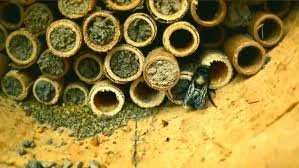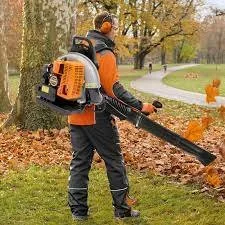Young American Robin - Photo by Pat Kavanagh via Birdshare
Good intentions can do harm. During baby bird season millions of birds are hatching and finding their place in the world. Young fledgling birds are making their first appearance outside of their nest at this time, so bird-nappings have started happening as well. Bird- napping is when a young bird who cannot fly yet is taken to a rehab center because of the fear that they’re injured when they are not. We want to emphasize that fledglings are just learning how to fly, so it is normal for them to be on the ground. The fledgling’s parents are almost always watching them from a nearby tree and feeding them. The parents will not feed their baby if a human is around, which is why many people observing a young bird may think it is abandoned.
Bird-napping separates these birds from their family. This can lead to possible imprinting, when a young bird identifies with — and depends on — humans, which prevents the bird from ever being released back into the wild. Rehabbers get very frustrated when we receive healthy fledges because we have to figure out how to return these birds to their original spot while caring for baby birds that have to be fed as often as every 20 minutes. In the past week, we received three bird-napped birds — including one that had been picked up 40 miles away.
The most common bird-napped birds are Robins, Crows and Blue Jays, so here are the things you should look out for in order to make sure the bird is healthy (and does not need to be taken to a rehab center). If you can hear the parents making alarm-calls, see droppings near the bird (an indication it’s being fed), or it appears healthy, then it should be left alone. Fledgling crows are often mistaken for adult crows because of their size. Fledgling crows have blue eyes and a pink mouth, so if a crow is not flying, look for these signs to confirm it is young and just figuring out aerodynamics. People are often worried about other animals getting to the bird on the ground. If you have cats or dogs, keep them inside or on a leash for a few days until the fledges have taken off. The parents are watching it and will chase off predators and fledges instinctively hide. The bird is much better off staying where it is. If it is clearly injured, bleeding or has flies on it, that’s when it should be taken to a rehab center.
https://www.wildliferescueleague.org/animals/does-this-animal-need-help/
Birds on the ground
A fledgling is an adolescent bird that is on the ground for a few days as it learns to feed itself, recognize predators, and builds the strength to fly. You can recognize a fledgling by a short tail on a fully feathered body. If the bird appears healthy and energetic and hops away when you approach it, leave it alone. The parents are generally flying overhead and may even attack you as you approach their baby. Keep pets out of the area for a few days to allow the bird to learn how to fly and get off the ground. Birds at this age do not do well in rehabilitation, so please allow every chance for their parents to care for them.
https://www.blueridgewildlifectr.org/faq
Baby birds should be left for at least a full day to assess whether adults are returning—if you see an adult feeding the baby, or if the baby remains alert, warm, and reactive after 24 hours, this is a success! In cases where you do not see any parent, we recommend monitoring the babies for a few days as they will certainly begin to get quiet/lethargic if the parents are not feeding. It is not uncommon for parents to monitor you and avoid feeding if they see you watching. Because of this, many people will not see parents even if they are actively feeding. If the baby starts going downhill during the first 24 hours, it can be assumed that the bird needs help.
When birds reach fledgling age, they will naturally jump out of their nest and be on the ground, unable to fly fully. As long as the bird is mostly feathered and is able to stand and hop, and has no other health issues (including being in a cat’s mouth), fledglings should be left alone on the ground—their parents will continue taking care of them, and this is an important learning stage in their life!










